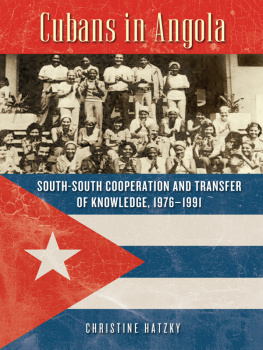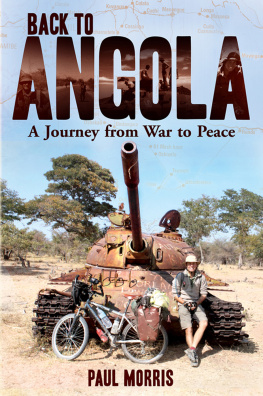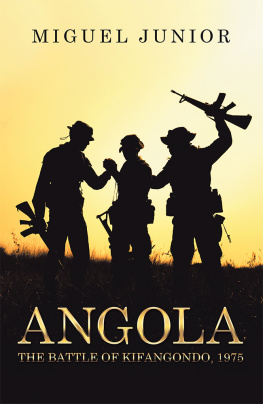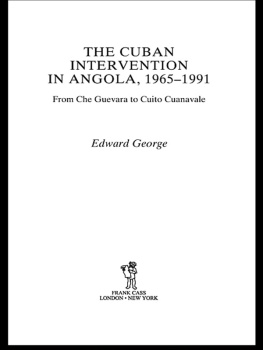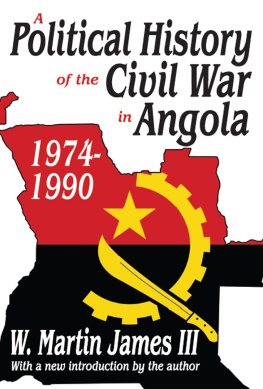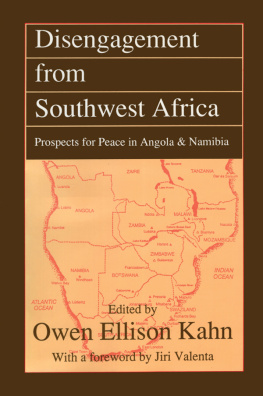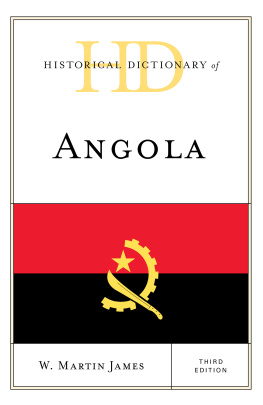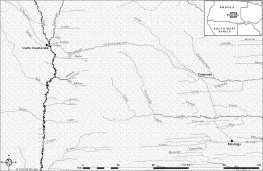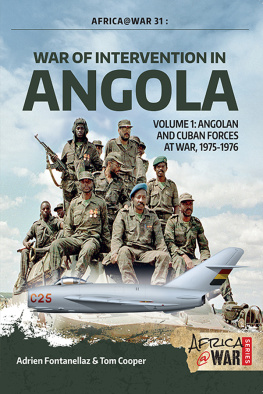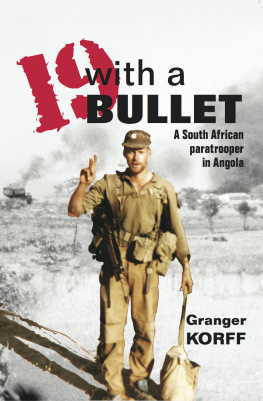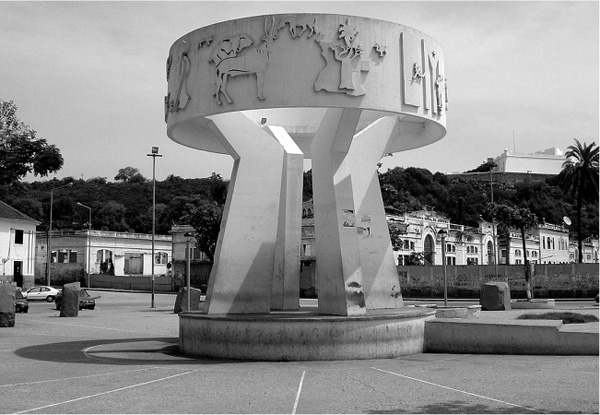A FRICA AND THE D IASPORA
History, Politics, Culture
S ERIES E DITORS
Thomas Spear
Neil Kodesh
Tejumola Olaniyan
Michael G. Schatzberg
James H. Sweet
Cubans in Angola
S OUTH -S OUTH C OOPERATION AND
T RANSFER OF K NOWLEDGE ,
19761991
Christine Hatzky
The University of Wisconsin Press
The translation of this work was funded by Geisteswissenschaften International, Translation Funding for Humanities and Social Sciences from Germanya joint initiative of the Fritz Thyssen Foundation, the German Federal Foreign Office, the collecting society VG WORT, and the Brsenverein des Deutschen Buchhandels (German Publishers and Booksellers Association).
Publication of this volume has been made possible, in part, through support from the Anonymous Fund of the College of Letters and Science at the University of WisconsinMadison.
The University of Wisconsin Press
1930 Monroe Street, 3rd Floor
Madison, Wisconsin 53711-2059
uwpress.wisc.edu
3 Henrietta Street, Covent Garden
London WC2E 8LU, United Kingdom
eurospanbookstore.com
Originally published as Kubaner in Angola: Sd-Sd-Kooperation und Bildungstransfer, 19761991, 2012 by Oldenbourg Wissenschaftsverlag GmbH, Munich
Translation copyright 2015 by the Board of Regents of the University of Wisconsin System
All rights reserved. Except in the case of brief quotations embedded in critical articles and reviews, no part of this publication may be reproduced, stored in a retrieval system, transmitted in any format or by any meansdigital, electronic, mechanical, photocopying, recording, or otherwiseor conveyed via the Internet or a website without written permission of the University of Wisconsin Press. Rights inquiries should be directed to .
Printed in the United States of America
Library of Congress Cataloging-in-Publication Data
Hatzky, Christine, author.
[Kubaner in Angola. English]
Cubans in Angola: South-South cooperation and transfer of knowledge, 19761991 / Christine Hatzky.
pages cm. (Africa and the diaspora: history, politics, culture)
Originally published as Kubaner in Angola: Sud-Sud-Kooperation und Bildungstransfer, 19761991,
2012 by Oldenbourg Wissenschaftsverlag GmbH, Munich.
Includes bibliographical references and index.
ISBN 978-0-299-30104-0 (pbk.: alk. paper)
ISBN 978-0-299-30103-3 (e-book)
1. AngolaRelationsCuba. 2. CubaRelationsAngola.
3. EducationAngolaInternational cooperation. 4. LiteracyAngolaInternational cooperation.
5. Teachers, ForeignAngola. I. Title. II. Series: Africa and the diaspora.
DT1355.C9H3813 2015
303.4826730729109048dc23
2014013807
Photo on title page: Monument on Luandas famous promenade, the Marginal. The monument was built by the Cubans themselves to commemorate their work in Angola. (photo by Christine Hatzky)
C ONTENTS
I LLUSTRATIONS
A CKNOWLEDGMENTS
This book is the English translation of my revised postdoctoral thesis submitted in November 2009 to the Faculty of Humanities at the University of Duisburg-Essen, Germany. It is the fruit of over five years (20042009) of work and research on three continents, which would not have been possible without the huge support I received from so many people wherever I went. Already as an undergraduate, I was fascinated by the relationship between Latin America and Africa and in the history of Latin America with all its global implications. Encouraged by Michael Zeuske, who was my professor at the University of Cologne in the 1990s, I became involved in the history of the Caribbean and Cuba. More than any other Latin American region, the Caribbean is a place where many different worlds and (world) histories coincide. It is also a region with particularly close links to Africa due to the transatlantic slave trade. The post-emancipation societies of the nineteenth and twentieth centuries, especially in Cuba, illustrate that the slave trade was not merely a unidirectional movement from Africa to America resulting from the forced migration of Africans. It was the start of a process of exchange and reciprocity.
In order to study these interrelationships, I had to look toward Africa, without neglecting my roots in the history of Latin America, and I regarded the dividing Atlantic as a bridge between the two continents. I received the final encouragement to embark on this transatlantic research project from Christoph Marx, professor of African history at the University of Duisburg-Essen, with whom I worked as an assistant professor from autumn 2002. His many suggestions, and his positive criticism and warm support made an invaluable contribution to the development of my postdoctoral project. I am particularly indebted to him. I could not have undertaken my research in Cuba, Angola, the United States, and Portugal without the two-and-a-half-year grant from the German Research Foundation. I therefore wish to take this opportunity to thank Guido Lammers, Angelika Stbig, and the foundations panel of experts. I also wish to extend my gratitude to the Geschwister Boehringer Ingelheim Stiftung fr Geisteswissenschaften, which helped fund the printing of the German edition by Oldenbourg Verlag Munich. I am honored to have been awarded the Geisteswissenschaften International Prize, which funded the translation of the book into English. My particular thanks go here to Cordula Hubert and Julia Schreiner of Oldenbourg Verlag for their support.
I also wish to express my appreciation to all the colleagues who helped me and my project throughout the years and over great distances: Angelina Rojas Blaquier (Havana), Nancy Jimnez Rodrguez (Havana), Rosa Cruz da Silva (Luanda), Mara da Conceio Neto (Luanda/London), Olga Portuondo (Santiago de Cuba), Orlando Garca Martnez (Cienfuegos, Cuba), Beatrix Heintze (Frankfurt/M.), Rainer Schultz (Boston/Cambridge/Cologne), and Michael Zeuske. David Birmingham (Canterbury), Franz-Wilhelm Heimer (Lisbon), Peter Meyns (Cologne/Duisburg), and Rita Schfer (Essen) all read early versions and individual chapters of my work, and their constructive criticism kept me on the straight and narrow. Wilfried Loth (Essen) and Jost Dlffer (Cologne) were the examiners of my postdoctoral thesis and in cooperation with other editors included the work in their series of publications, Studien zur internationalen Geschichte (Studies in International History) with Oldenbourg Verlag. I sincerely thank them too. Gwen Walker of the University of Wisconsin Press prepared and oversaw the publication of the book with great care and professionalism. Daniel Giere showed great commitment and skill in formatting the manuscript. Mair Edmunds-Harrington produced a wonderful translation.
During the months I spent writing this book, I was supported by Sabine Vosskamp. Her critical reflections helped make the work go much more quickly and smoothly. I thank her warmly. I also wish to thank my husband, Jens Voelschow, for his untiring patience, his understanding, and his emotional and practical support, which gave me the calm I needed to complete this work.
I wish to thank the many people who supported my often very challenging day-to-day research, among them the librarians, archivists, and employees of the Ministries of Education in Cuba and Angola, along with the employees and colleagues of the Instituto de Historia de Cuba in Havana. I thank all those who, particularly under the difficult research conditions in Cuba, were prepared to answer my questions and helped to open doors, overcome hurdles, and provide practical support in my search for documents and interviewees. My very special thanks, however, go to all my interviewees from Cuba and Angola, including those living in exile, who were willing to share their stories with me. These Cubans and Angolans encountered each other as internationalists, civil aid workers, pupils, students, teachers, and colleagues in Angola and on the Cuban Isla de la Juventud. Their memories and experiences are central to this story. Leading politicians in both countries may have been the ones who planned, established, and developed Cuban-Angolan cooperation, but without the personal commitment of Cuban

